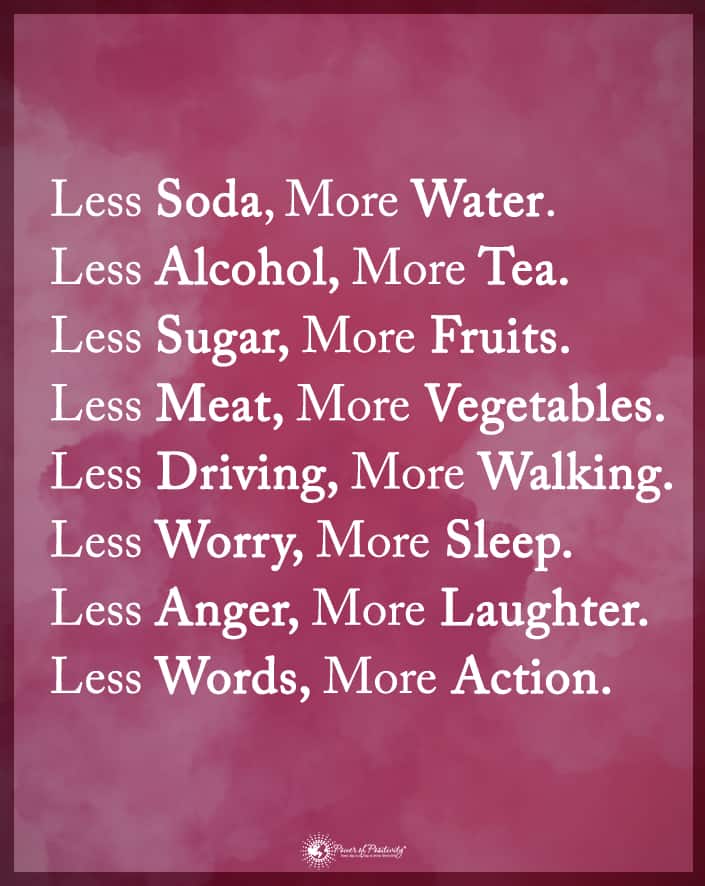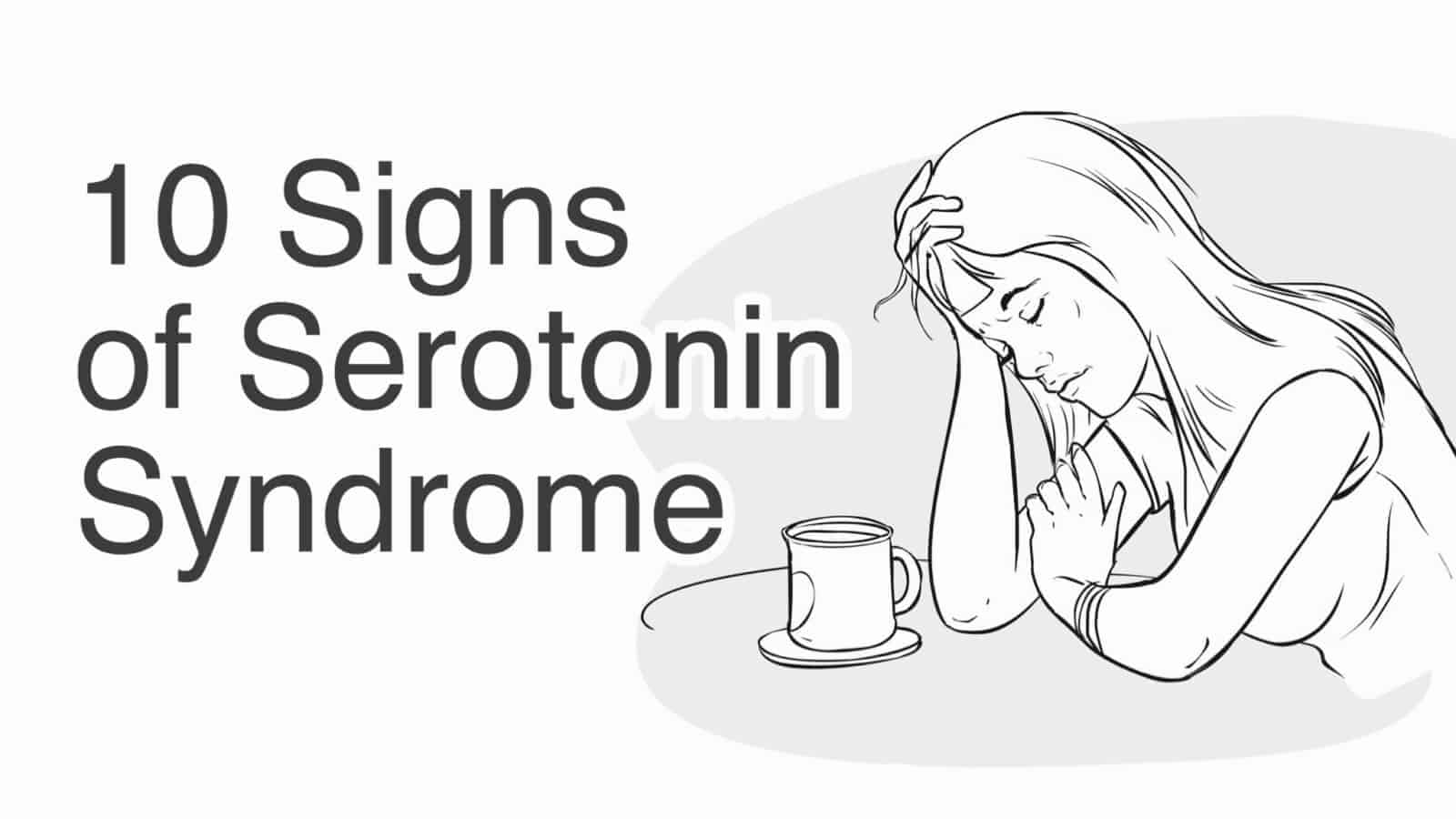Serotonin is a chemical found in the human body that’s a natural mood stabilizer. But it’s not just involved in regulating your mood. It also plays a significant role in some bodily functions, such as sleeping, eating, and digestion. Still, most people know it as the chemical that makes you happy. Serotonin is also closely tied to substance abuse. Part of the reason people get addicted is that they need to keep their serotonin levels up. Otherwise, they experience symptoms of depression and withdrawal–serotonin syndrome.
But for most people, serotonin is something they boost naturally. Exposure to light, exercise, healthy diets and meditation can increase serotonin levels. That said, some people suffer from serotonin deficiency. That means they must take medications and supplements. For example, people with anxiety and sleep issues often take medicine that boosts serotonin. Even some migraine medication increases serotonin levels.
10 Signs of Serotonin Syndrome
Serotonin syndrome happens when you take a new drug or mix medicines that increase serotonin levels. Most people aren’t even aware that this can be a side effect of medication. So, when they suffer from this syndrome, they won’t know what’s happening to them. And they probably won’t know what to do to solve the problem and relieve the symptoms. Here are the most common ten signs of serotonin syndrome you need to be aware of.

1. Nervousness
One of the mildest signs of experiencing serotonin syndrome is a shift in mood. Because serotonin helps regulate your mood, it can make you jittery and nervous when it gets too high. While it’s true that low levels of serotonin connect to depression, that doesn’t mean that very high levels will always make you feel good. For any hormone in the human body, a level out of the normal range indicates something wrong.
When your serotonin levels get too high, you feel agitated and restless for no apparent reason. If your mood changes just a couple of hours after taking your medication, that’s a clear sign you are experiencing serotonin syndrome. Still, if nervousness is the only symptom you are experiencing, you don’t need to worry. You are probably experiencing a mild case, and your serotonin levels will go back to normal in a day or so.
2. Insomnia
Many factors influence the sleep/wake cycle. One of these factors is the level of serotonin in the human body. It’s clear that this hormone plays a role, but scientists still argue what precisely this role is. Lately, research proves that serotonin plays a big part during REM (rapid eye movement) sleep. It seems that serotonin plays both facilitatory and inhibitory roles.
While it might seem like too much serotonin might put you straight to sleep, that’s not exactly the case. If the serotonin levels are over the standard limits for a few days or even weeks, then it might be the case that you always feel sleepy. But, in the short term (the first few days), too much serotonin leads to wakefulness. That’s because your mood changes and you become agitated, but also because your sleep/wake cycle gets messed up.
3. Rapid Heart Rate
It’s still not clear if serotonin syndrome causes an increased heart rate or if it’s a side effect of other symptoms. Still, evidence suggests that most people who suffer from this syndrome experience increased heart rate. This might be because they enter a state of panic or nervousness or are restless. Or it might be because of how serotonin interacts with all areas of the human body. It seems that your heart rate heightens because serotonin syndrome leads to arterial hypertension.
In some cases, the increased heart rate could even lead to arrhythmia, leading to heart failure. Also, the rapid heart rate increases the risk of stroke or heart attack.
4. Headaches
Medication that boosts serotonin can counteract migraines and headaches. The ironic part is that when your serotonin levels are way too high, you might experience migraines as a symptom. This paradox is the case because serotonin can cause blood vessels to narrow. In that case, not enough oxygen reaches the brain, thus causing a migraine. Additionally, contractions of blood vessels can cause throbbing pains, which can feel like you are getting stabbed in the head.
As a result of migraines, you could also experience dizziness. Fortunately, this symptom is also a mild one. While migraines are uncomfortable, they can’t lead to more severe issues.
5. Diarrhea
This symptom seems to be the least likely to happen. Since serotonin is most commonly called the “happy hormone,” how does it connect to gut health? Well, that’s because serotonin plays an essential part in digestion, however unlikely that might seem. Serotonin is released into the blood or the lumen of the gut. It inhibits gastric acid secretion and can be an endogenous enterogastrone. It appears to stimulate the production and release of gastric and colonic mucus.
But when serotonin levels are out of ordinary bounds, the gastric system is affected. Over time, too much serotonin increases the amount of fluid in the gut. It also speeds up the function of the stomach, which causes frequent or unpredictable diarrhea.

6. Vomiting
Vomiting is a symptom that also happens because serotonin levels are related to gut health. But this symptom can also appear because serotonin syndrome makes people nauseous. Serotonin is tasked to push out noxious or upsetting foods quickly. But the chemical also stimulated the part of the brain tasked with controlling nausea. That can only happen if the hormone levels are in normal bounds.
When you have levels of serotonin that are way too high, the functions to control nausea won’t work as they should. As a result, you will probably vomit or generally feel sick to your stomach.
7. Dilated Pupils
Dilated pupils are probably the most common and well-known symptom of serotonin syndrome. This is something that most people associate with illicit drug consumption. And while it’s true that illegal drugs lead to dilated pupils, that’s because serotonin levels increase. When dealing with serotonin syndrome, the same thing happens. Your pupils dilate because of how the hormone interacts with your body.
Serotonin plays a part in controlling the muscle groups around your irises. When serotonin levels are outside normal bounds, the hormone can’t correctly control the muscles. Thus, the muscles get looser, and the pupil gets bigger. Again, this is a mild symptom that will go away in days. But that doesn’t mean you aren’t suffering from a dangerous case.
8. Shivering and Sweating
Shivering and sweating are pretty common symptoms when dealing with serotonin syndrome. They do not result directly in an increase in serotonin levels. Instead, they are secondary effects of the condition. When dealing with serotonin syndrome, you will likely experience random muscle tremors and contractions. This, coupled with the changes in blood pressure, leads to fluctuations in body temperature.
As you probably know, shivering and sweating are ways the body tries to regulate its body temperature. When you are too warm, your body sweats to cool you off. When you are too hot, your muscles contract to warm you up. Thus you start shivering. So, when dealing with serotonin syndrome, you will experience both sweating and shivering because your body temperature will fluctuate.
9. Muscle Twitching or Rigidity
Serotonin is a neuromodulator. That means it can change the rhythm and behavior of single cells in the nervous system. It can cause neurons to fire more often than they should. For example, a neuron might fire once every second. But, when serotonin is involved, it might fire ten times every second. Serotonin can affect motor neurons that are tasked with muscle contraction. So, when serotonin levels get too high, those motor neurons start firing more than they should. Thus, you can experience muscle twitching.
But serotonin doesn’t always cause twitching. Sometimes, the neurotransmitter confuses the motor neurons, even blocking their activity. Because of that, you can experience muscle pains and rigidity. This can lead to difficulty moving and reduced motion range.
10. Seizures
Potentially one of the most life-threatening symptoms of serotonin syndrome is seizures. These seizures can be caused either by the combination of drugs you take or by other effects of the syndrome. For example, a high level of serotonin leads to a high fever. If left untreated, that fever can cause seizures. Again, because serotonin is a neurotransmitter, it can affect the nervous system and inhibit normal functions.
As the nervous system is affected, the chances are that random bursts of electromagnetic signals will affect and interrupt standard brain signals. As the standard connections between brain cells are severed, you risk experiencing seizures. Seizures can be lethal. But even when they are not, they still cause some damage. You risk losing consciousness and even passing out.
Final Thoughts on Some Signs of Serotonin Syndrome
Serotonin syndrome is a condition that doesn’t get the attention it should. It is pretty standard among people who take drugs for depression, anxiety, migraines, etc. Still, not many people know what this condition is and what dangers it poses.
Serotonin syndrome happens when people take a drug (or even mix a few drugs) that boosts serotonin levels. When the hormone levels shoot through the roof, it affects many body functions. Symptoms range from mild to severe, depending on how high your serotonin levels are. In most cases, you will get over the issue in a couple of days after you stop taking the medication that caused it in the first place.
But, in some cases, you might even need to be hospitalized. Some milder symptoms are nervousness, vomiting, diarrhea, dilated pupils, sweating, and shivering. But you could also experience a rapid heart rate, high fever, and even seizures. As soon as you notice that you are experiencing some symptoms, you should contact your doctor and stop taking the medication that caused the problem.




















